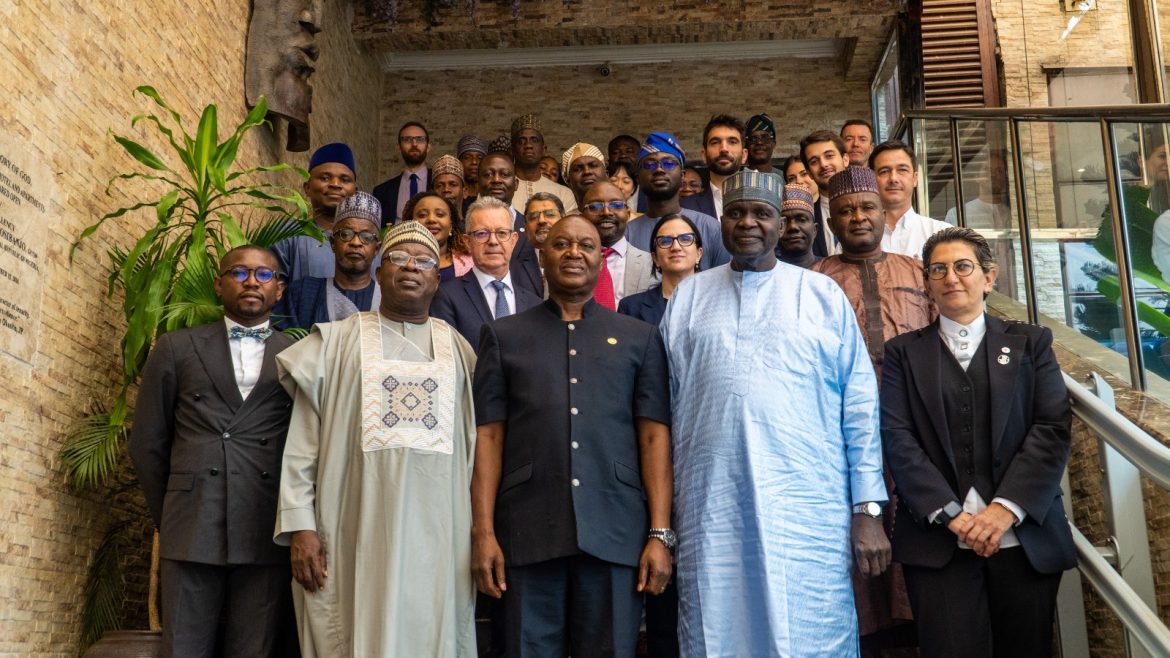By Franca Ofili
Stakeholders have unveiled plans to execute a 10 million dollars water infrastructure rehabilitation project in Maiduguri, aimed at ensuring reliable access to safe water for residents.
Ms. Doris Doueihy, Head of Delegation for the International Committee of the Red Cross (ICRC) in Nigeria, announced the initiative during a high-level partnership roundtable, in Abuja on Wednesday.
The event was themed “Delivering Inclusive and Resilient Water Services in Maiduguri.”
The key partners in the initiative include the Borno State Government, the African Development Bank (AfDB), the ICRC, and the Borno State Ministry of Water Resources.
“We particularly recognise the encouraging progress with the African Development Bank,” Doueihy said.
“They have positively received the expression of interest on the Maiduguri Water Infrastructure Rehabilitation and Development Initiative for 10 million dollars in catalytic financing.”
She explained that Maiduguri’s water system is under immense strain due to rapid urban expansion and climate shocks such as the 2024 floods.
The ICRC, drawing on its experience in conflict and urban environments, developed the Maiduguri Urban Water Supply Master Plan in response.
Endorsed by the Borno State Government in 2023, the master plan provides a safe and investment-ready framework to meet urgent needs.
According to Doueihy, its strength lies in breaking down a billion-dollar challenge into fundable and actionable projects.
“While the ICRC’s mandate is purely humanitarian, we often act directly to stabilise and restore essential systems.
“In this master plan, our role is also to design, co-convene, de-risk, and accelerate progress.
“We will not be raising funds ourselves. Rather, we’re offering our expertise and facilitating collaboration between government and donors,” she said.
Doueihy stressed the importance of bridging humanitarian efforts with long-term development goals.
“In today’s world of protracted crises, we must respond to urgent needs while investing in long-term resilience.
“This is how we enhance the impact of humanitarian action and prevent development setbacks.”
She described the current initiative as a crucial first step in unlocking larger investments through strategic partnerships.
“When humanitarian, development, and financial actors align under one plan, we protect public health, reduce household costs, and build resilience.
“This is what communities expect: sustainable solutions,” she added.
In his welcome address, Dr Abdul Kamara, Director General of the African Development Bank (AfDB), highlighted the Bank’s sustained investment in Nigeria’s water and sanitation sectors.
He noted that over the past decade, the Bank had invested more than 800 million dollars in those sectors, benefiting at least eight million Nigerians.
“Through our active portfolio, in partnership with the Ministry of Water Resources and Sanitation, we’re supporting reforms and developing new investment plans for additional interventions,” Kamara said.
He recalled the Bank’s Inclusive Basic Services Delivery and Livelihood Empowerment Integrated Programme for Northern Nigeria, approved in 2016, which prioritised water and sanitation as pathways to stability.
The programme has so far trained more than 26,000 individuals in health, education, and WASH sectors.
Kamara said rural water and sanitation investment planned had been prepared for 23 states, including Borno, where more than 1.6 million people had benefited, 22 per cent of them in Maiduguri.
“These numbers, though impressive, shouldn’t mask the magnitude of the current needs.
“The demand remains enormous, and the Bank is already in discussions with the Borno State Government, ICRC, and other partners to take concrete steps.”
He emphasised that strong, transparent institutions are essential to managing water resources sustainably and equitably, aligning with SDG 6 (Clean Water) and SDG 16 (Peace, Justice, and Strong Institutions).
In his remarks, Borno State Governor, Prof. Babagana Zulum, represented by Secretary to the State Government, Malam Bukar Tijani, said the importance of inclusive and resilient water services for Maiduguri and its environs cannot be overstated.
He referenced the devastating flood of Sept. 10, 2024, which displaced residents and damaged water infrastructure, worsening the existing scarcity of safe drinking water.
“Water is the foundation of life, health, and prosperity. Without it, we cannot achieve peace, stability, or economic growth.
“The theme of 2025 World Water Day, ‘Water for Peace’, resonates deeply with us in Maiduguri and Borno State,” Zulum stated.
He said the state government was committed to ensure that every citizen, regardless of location or socioeconomic status, had access to safe and potable water.
“This includes building water systems resilient to climate shocks and leveraging innovative technologies for long-term solutions.
Zulum outlined key focus areas for the state’s water strategy.
“Combining solar-powered boreholes with piping systems, this approach has already provided nearly 1.5 million people with access to safe water. We plan to expand it to cover all urban and peri-urban areas of Maiduguri.
“We will invest in flood-resistant structures such as elevated water points and reinforced drainage systems to protect our progress from climate-related disasters.
“Acts of vandalism and theft have undermined our efforts. We will work with security agencies and community watch groups to protect these vital assets.
“Although N9.7 billion was allocated to the Ministry of Water Resources in 2024, we acknowledge that more resources are needed.
“We will prioritise water in our fiscal planning and ensure transparency in fund utilisation.”
Zulum called on UNICEF, the AfDB, the World Bank, ICRC, and other development partners to deepen their collaboration with Borno State to deliver on shared water security goals.
NEWS AGENCY OF NIGERIA

